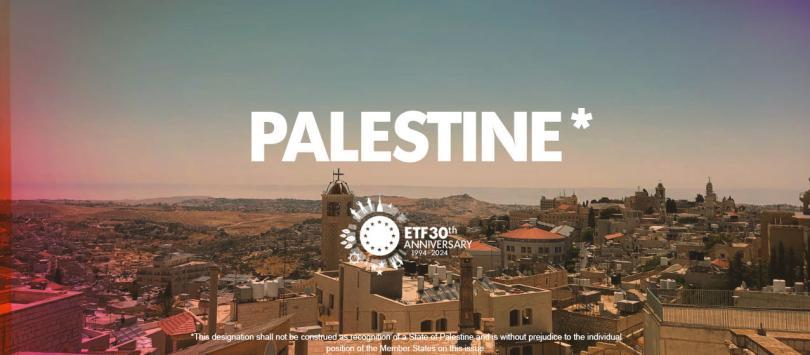ETF: 30 Years, 30+ Stories: Palestine, challenges for a skilled and resilient workforce

The EU is the largest international donor to the Palestinians territories, and human capital development is a key area of international support. In this picture, the ETF is working, in close cooperation with the Office of the European Union Representative in Jerusalem, to support both the EU-Palestine political dialogue and to provide assistance to international projects and governmental initiatives. In addition, the ETF participates in the EU donors joint programming working groups in the country, working in particular with GiZ (German Development Cooperation), ENABEL (Belgian Development Agency) and DVV International.
According to the ETF’s latest country analysis on education, training and employment developments, “the VET system in Palestine performs well in imparting basic skills and competences to youths and adults, aligning with the transition towards green and digital societies. However, a significant challenge lies in bridging the gap between the VET system and the labour market”. While the levels of unemployment, skills mismatch, informal economy, and gender disparities are similar to other countries in the region, the Palestinian territories are in many ways unique. As an example, a recent ETF report on platform work in the Southern Mediterranean has found that this kind of working arrangement is particularly relevant in Palestine, due to the inherent mobility difficulties, and can represent an important leverage for digitally powered employability dynamics.
“Working with Palestine is certainly challenging, because of pressing socio-economic issues such as high unemployment and political instability, the fragmentation of the country’s skills development systems, and the high dependency on donor funding,” says Fabio Nascimbeni, ETF Country Liaison for Palestine*. “At the same time, the strong drive to improve education and equip youth and adults with skills for better employment opportunities across society, and especially the incredible resilience of Palestinian stakeholders, make working in the country extremely rewarding and motivating.”
An important step to address the issue of TVET system fragmentation was the creation, in 2021, of the National TVET Commission (NTC), a governmental organisation with the mandate to oversee the Palestinian TVET strategy, to identify in-demand skills and contribute to the creation of a comprehensive labour market and skills information system.
Palestine has always been a focus of international development efforts. “International and European donors play a crucial role in the education, training and employment sectors in Palestine. They have been instrumental in providing financial resources, technical assistance and policy support that have led to relevant and significant improvements and innovations,” says Fatema Ghadieh-Asfour, Head of the programme DoTVET for GIZ Palestine.
In partnership with GIZ, the ETF is supporting the Palestinian government’s efforts to develop a National Qualifications Framework (NQF). “The NQF in Palestine will standardise qualifications by defining specific learning outcomes for each level of education, ensuring consistency and high quality across TVET programmes,” says Enas Sawi, TVET and Labour Market Specialist in the DoTVET programme at GIZ Palestine.
Another area where the ETF is working, mainly in collaboration with ENABEL, is support to employability. Youth employment in Palestine faces serious challenges: recent data from the Palestinian Central Bureau of Statistics show alarming unemployment rates, particularly with a steep rise to 74% in Gaza and 29% in the West Bank, culminating in an overall unemployment rate for Palestine of 46% by the end of 2023.




























 Syria
Syria 





